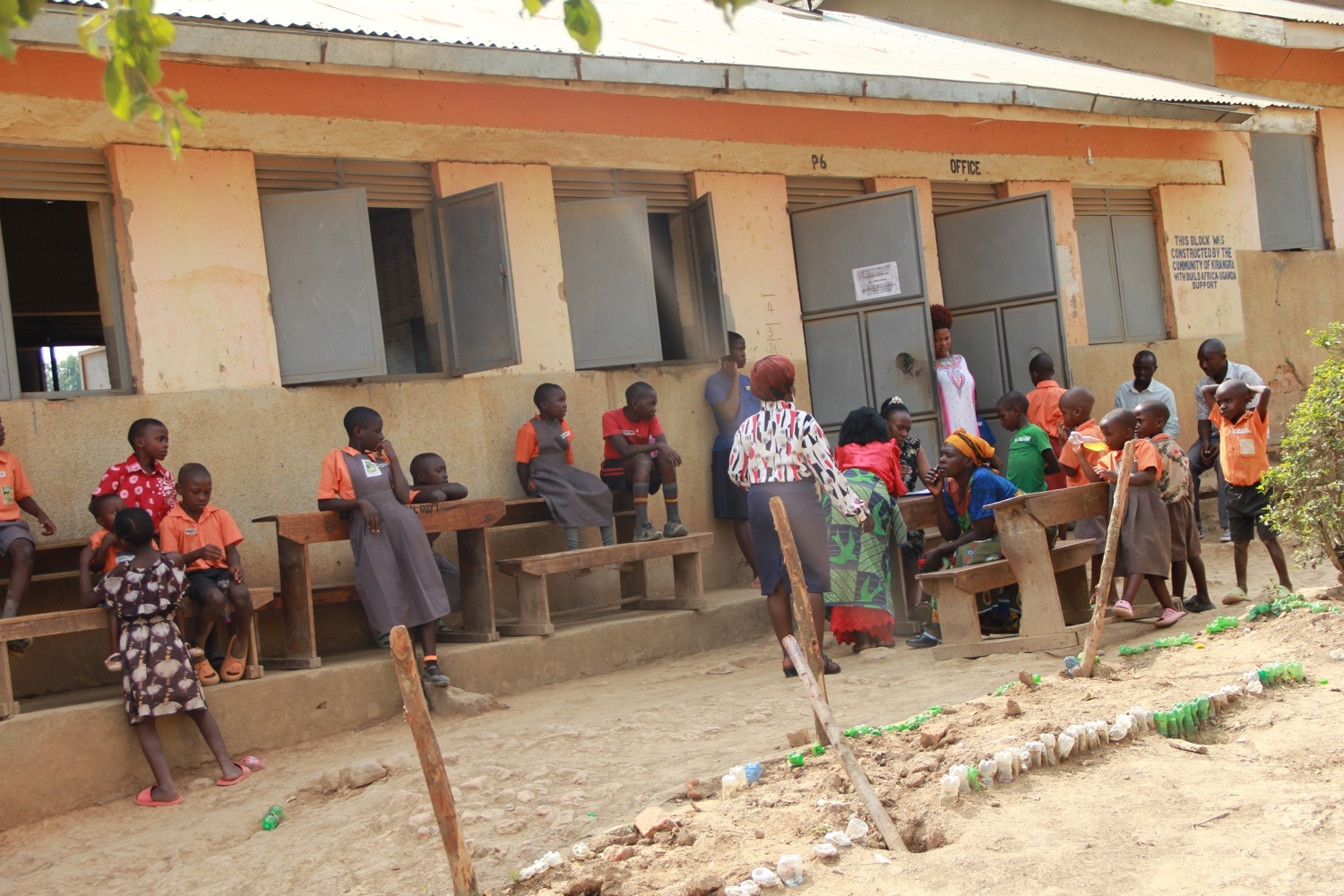On 15th August 2025, Asante Children and Food Initiative (ACFI) carried out a rapid assessment at St. Kizito Kanyogoga Primary School in Rakai District to better understand how food insecurity affects children’s education and wellbeing. The findings revealed a sobering reality: hunger is an everyday struggle for most pupils, but it is also an urgent call to action.
Children Going to Class on Empty Stomachs
Out of 40 pupils interviewed, 95% said they sometimes feel hungry while at school, with the majority reporting that they eat only one meal a day. Very few pupils, just 3 out of 40, manage to eat three meals daily. At home, beans and matooke are common, while at school, children dream of having beans and posho, occasionally rice.
The link between hunger and learning could not be clearer. While attendance is generally good, children admitted that hunger makes it harder to concentrate. Teachers and parents echoed the same concern: without adequate nutrition, performance and attendance inevitably suffer.
The Parents’ Voice
From the 15 parents and guardians interviewed, most reported living in households of 4–10 people, surviving on just UGX 50,000–150,000 a month. Nearly all parents admitted that their children had gone without food at some point, and 40% said their children had been diagnosed with malnutrition.
When asked if they would support a school feeding programme, every parent said yes. They believe such a programme would help children attend school daily, improve performance, and ensure that children eat at least one reliable meal.
Beyond Numbers: The Human Face of Hunger
The statistics tell one side of the story, but behind them are children facing extraordinary challenges. One girl is recovering from brain surgery and struggles with frequent headaches and vision problems. Another boy began school at 12 because he had to work the land to pay fees, his father, who has a disability, cannot support him fully. Several others live with single parents, suffer chronic illnesses, or have disabilities that make learning even more difficult.
These stories remind us that a feeding programme is not just about food—it is about giving children the strength and hope to learn, play, and thrive.
The Way Forward
Based on the findings, ACFI recommends launching a school feeding programme anchored on posho and beans, complemented by rice or matooke when possible. The programme should be paired with health and protection measures such as safe drinking water, handwashing, deworming, and medical referrals for children with special needs.
We also call on the community, school management, and partners to contribute in kind, through firewood, water, or voluntary service, to make the programme sustainable.
ACFI’s Commitment
Hunger should never be a barrier to education. At ACFI, we believe that every child deserves the chance to learn on a full stomach, with dignity and hope for the future. The assessment at St. Kizito Kanyogoga Primary School has strengthened our resolve to work hand-in-hand with schools, parents, and communities to make this vision a reality.
Read the Full Rapid Assessement Report here = Rapid Assessment Report on Food Sitution in Rakai District


